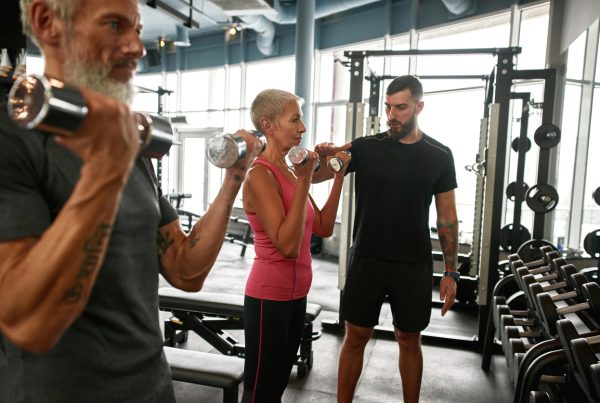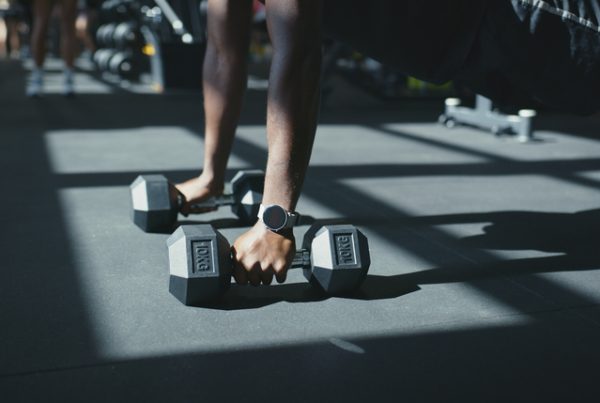- Nearly three quarters (72%) of adults surveyed with a mental health condition say being physically active has helped them to stay well and be less likely to be off work
- However, new research from ukactive, supported by Mind, shows just 16% of people with a mental health condition surveyed feel able to meet the recommended levels of physical activity (150 minutes a week)
- More than three in five (61%) say they would join a gym if it was offered as a benefit or at a discounted rate through their employer
- ukactive calls on Government to use the physical activity sector to improve workforce health as thousands of workplaces, schools, gyms, and leisure centres prepare to mark National Fitness Day on Wednesday (24 September).
Nearly three quarters (72%) of people with mental health conditions say being physically active has helped them to stay well and be less likely to be off work, according to a new report by ukactive.
The findings, released today (Monday 22 September), reveal the experiences of people living with mental health conditions, with more than three in five (61%) saying they would be likely to join a gym, fitness or leisure facility if it was offered as a benefit or at a discounted rate through their employer (compared to 53% who reported no physical or mental health condition).
The report, called Mental Health in Motion, also shows the value that those with mental health conditions place on being active and helping them to avoid sickness and time off from work, with 85% saying that the main reason for joining their gym, fitness or leisure facility, was to improve their mental health and wellbeing. This was a stronger motivating factor for those with a mental health condition compared to those without a health condition (85% vs 77%).
Today’s evidence comes as the Government grapples with the challenges of the UK’s mental health crisis and its effect on the economy, with workplace sickness reaching 148.9 million working days – a figure which is costing the economy £103bn a year.
ukactive’s polling with Savanta found that 16% of people with mental health conditions meet the Chief Medical Officers’ recommended activity levels (of 150 minutes a week), compared to 23% of those without a health condition, suggesting that while motivations to be active remain high among this group, more can be done to incentivise and support their route into physical activity.
Polling of more than 2,000 people was carried out every three months from January 2024 to July 2025, with up to 14,618 being surveyed in total. Of the 2,075 respondents who reported that they have a mental health condition, more than half (52%) felt their employers should provide access to fitness facilities, compared to 43% of people without a health (physical or mental) condition.
ukactive has called for the Government to go further to get the nation more active, including helping employers by expanding the Cycle to Work scheme to become ‘Workout from Work’, which would cover a greater range of activity options, from discounted gym memberships to fitness equipment as well as cycling kit.
Other findings:
- One in seven people (14%) reported that they experience mental health conditions — making it the most common health condition reported in the survey.
- Generation Z* are most likely to report they had a mental health condition (21%)
- Swimming was the leading activity reported among people surveyed with mental health conditions, with 35% taking part at least once a month and one in four (25%) swimming twice or more each month.
- Prevalence of mental health problems among those who had joined a gym reduced as length of membership increased. For example, those who had held a membership for more than three years (13%) reported a lower prevalence than those who had been a member between three and six months (21%).
- 40% of individuals with mental health conditions were also more likely than those with no health condition (35%) to prefer treatment for a short-term health condition in their gym, pool and leisure centre over a hospital, suggesting there is a growing preference for mental health support in these facilities, outside of a clinical setting.
The findings come as the nation gets ready to celebrate all the benefits of being physically active on National Fitness Day, taking place across the UK this week on Wednesday 24 September.
Gyms, pools and leisure centres are the main drivers of physical activity across the nation, with a record 11.5 million people now members of a health and fitness club in the UK according to The Health & Fitness Market Report 2025.
The sector hosts a range of services and programmes to support those living with health conditions, including helping individuals to support and manage a range of mental health conditions including anxiety and depression.
Huw Edwards, CEO of ukactive, said: “The findings we publish today show just how powerful physical activity is for those with mental health conditions and many say that exercise helps them manage their condition and stay in work.
“As the nation gets ready to celebrate the benefits of being active on National Fitness Day, the Government has a real opportunity to build on its commitments in its 10 Year Health Plan and its Keep Britain Working review and work in partnership with our sector. Doing so will demonstrate that it is serious about supporting all British workers in improving their physical activity levels that can aid their physical and mental wellbeing and help them back to work.
“Simple steps, like offering discounted memberships in partnership with employers, can make physical activity feel like an everyday essential, not a luxury. That way, we can boost activity levels and help build a healthier, more economically involved population.”
Sarah Watts, CEO of Alliance Leisure, sponsor of ukactive’s report, Mental Health in Motion, said: “This important report shines a light on the vital role exercise can play in supporting workplace mental health.
“With 72% of people with mental health conditions saying that being active helps them stay in work, it’s clear that physical activity is a powerful tool for wellbeing and resilience. Yet, with only 16% meeting the recommended activity levels, there is a huge opportunity, and responsibility, for all of us to help bridge that gap.
“At Alliance Leisure, we welcome this research and are committed to working with our partners to create environments and opportunities that make physical activity more accessible, enjoyable and achievable for everyone.”
Hayley Jarvis, Head of Physical Activity at Mind, said: “We know that being physically active can act as a protective factor for our wellbeing and support the management of mental health conditions. Despite these benefits, many people with mental health conditions still face barriers to accessing physical activity, particularly those experiencing financial strain. This is why Mind is calling for better support from the government for those out of work because of their mental health – this helps people to do things that make them feel better and return to work, like physical activity.
“With greater support from employers through workplace initiatives, as well as with the fitness industry delivering safe, effective and tailored sessions, we can help make physical activity more accessible to everyone with a mental health condition.”
To read the full report, Mental Health in Motion: Consumer Perspectives on Mental Health in Fitness and Leisure, click here.
The report is sponsored by Alliance Leisure, with accompanying data and insights included from Active Insight. The report has also been endorsed and resources provided by the mental health charity, Mind.
*Generation Z within the sample are grouped as those born between 1997-2009, currently aged 16-28 years.




